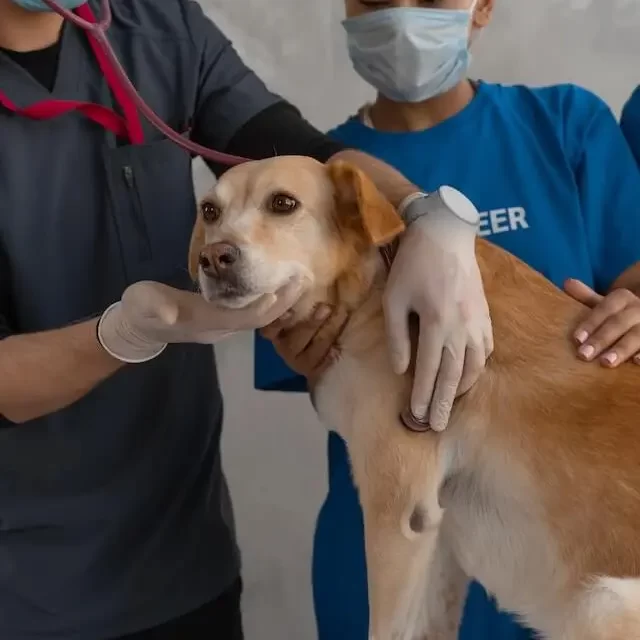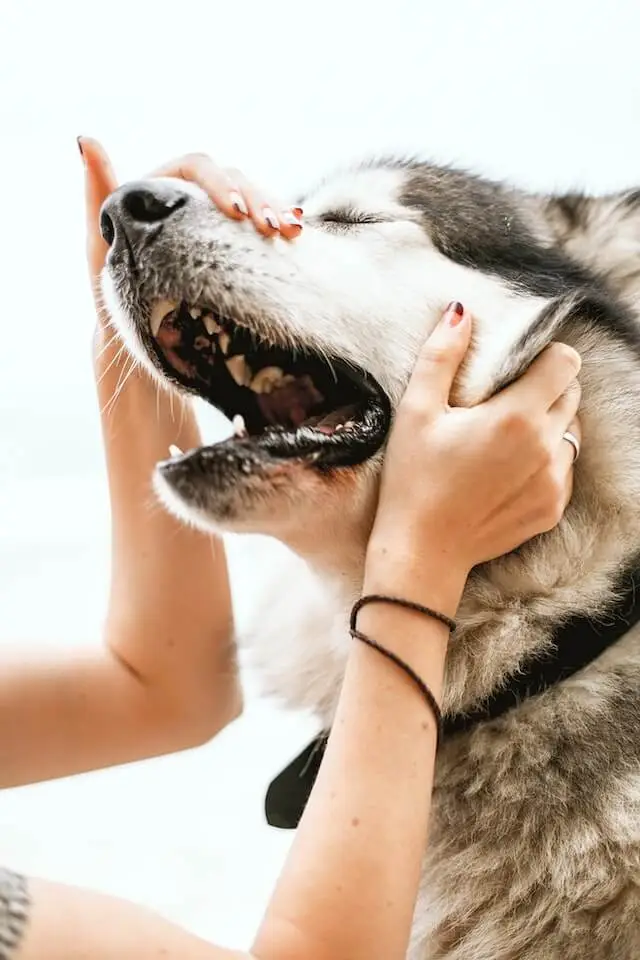Dog breath smells like fish? Well, dogs, our loyal and loving companions, never cease to surprise us with their idiosyncrasies. From their boundless energy to their unbreakable loyalty, these furry friends enrich our lives in countless ways. However, there are moments when our four-legged companions exhibit behaviors and signs that raise eyebrows.
One such peculiar phenomenon is when your Dog breath smells like fish. In this article, we’ll embark on an olfactory journey to uncover the mysteries behind this sudden fishy dog breath, exploring reasons ranging from harmless habits to potential health concerns.
Dive into the depths of your dog’s mysterious fishy breath and emerge with newfound insights into its unique behavior.
Why Does My Dog Breath Smells Like Fish? Unraveling the Enigma
“Why does my dog breath smells like fish?” This query might sound unusual, yet it’s more common than you might think. Canine companions can develop breath with an unexpected aquatic aroma for various reasons.
It’s essential to note that not all cases are cause for alarm, but rather opportunities to understand your pet better.
1. Culinary Curiosities: Diet and Digestion
Just like humans, a dog’s diet can significantly impact its breath. Sometimes, their fishy breath can be attributed to the foods they consume.
If your dog has recently indulged in fish-based treats or meals, it’s no surprise that their breath might acquire a maritime essence. The residual oils and proteins found in fish could linger, causing an olfactory fusion of furry friend and fish.

2. Excessive Licking: A Lighthouse of Warning Signs
Excessive licking is a common behavior among dogs, but it could be a silent messenger of underlying issues.
“How to stop my dog’s breath from smelling like fish?” Inquiring minds want to know. Well, excessive licking, particularly of paws or other body parts, can introduce foreign particles into your dog’s mouth. Over time, these particles can contribute to the unique aroma wafting from your pet’s breath.
3. Canine Kidney Conundrums: Fishy Breath and Kidney Disease
While some causes of fishy breath are relatively harmless, others require vigilance. One potential red flag is dog fishy breath due to kidney disease.
Canine kidney issues can manifest in various ways, one of which is altering the chemical balance within the mouth. This disruption can create an ammonia-like smell reminiscent of fishiness. If your dog’s breath suddenly becomes fishy and is accompanied by other signs like increased thirst, changes in appetite, and lethargy, it’s advisable to consult a veterinarian promptly.
4. Dental Dilemmas
Believe it or not, poor oral hygiene can lead to breath that conjures up less than pleasant associations. Just as a neglected tooth can result in bad breath for humans, dogs are susceptible to dental issues.
The accumulation of plaque and tartar, along with potential gum disease, can give rise to malodorous breath, sometimes reminiscent of more unsavory scents.
5. When “Dog Breath Smells Like Death”: The Grave Concern of Gastrointestinal Issues
In some instances, dog breath smells like fish might escalate into something even more unsettling – a scent akin to death itself. Although this scenario is rare, it’s vital not to ignore it. Foul breath can occasionally be linked to gastrointestinal issues or infections. If your dog’s breath takes a turn for the worse and is accompanied by symptoms like vomiting, diarrhea, or a general decline in well-being, consulting a veterinarian is imperative.
6. Canine Quirks: From Urine to the Unexplainable
“Dogs breath smells like urine?” Excessive licking and bad breath in dogs? This might sound perplexing, but sometimes, even a faint urine-like scent can emanate from your dog’s breath. Certain urinary conditions can lead to the production of compounds that find their way into the mouth, causing an uncanny olfactory overlap.
Uncover a treasure trove of solutions to keep your pup’s breath as fresh as a sea breeze, making every cuddle a pleasant experience.
How to Stop My Dogs’ Breath from Smelling Like Fish?
Addressing the various issues related to your Dog breath smells like fish requires a combination of proper care, vigilant observation, and, in some cases, veterinary assistance. Here’s a comprehensive guide on how to tackle each concern:
1. Dietary Adjustments
If your dog’s fishy breath is a result of their diet, consider modifying their meals. Opt for high-quality, balanced dog food that doesn’t heavily rely on fish-based ingredients. A variety of proteins can help maintain your dog’s health while minimizing strong odors.
2. Excessive Licking
To prevent foreign particles from contributing to fishy breath, address excessive licking. Regularly groom your dog to keep their coat clean and reduce the chances of debris being transferred to their mouth. Engage them in activities that discourage over-licking, such as providing stimulating toys or practicing training commands.
3. Kidney Health
If you suspect kidney disease, consult a veterinarian immediately. Early detection and management are crucial. Your vet will perform tests to determine if kidney function is compromised. If diagnosed, they will prescribe a treatment plan, which might include dietary changes, medications, and regular monitoring.
4. Dental Hygiene
Maintain your dog’s dental hygiene to combat dog breath problems. If the cause is dental hygiene, regularly brush your dog’s teeth using a pet-safe toothbrush and toothpaste. Check your dog’s teeth and gums regularly to rule out any abnormalities.
Provide dental treats or toys designed to reduce plaque and tartar buildup. Schedule professional dental cleanings with your veterinarian as recommended.
5. Serious Health Concerns
If your dog’s breath takes on an odor akin to death or is accompanied by other alarming symptoms, consult a veterinarian immediately. Prompt medical attention is necessary to diagnose and address potential infections, gastrointestinal issues, or other underlying health problems.

6. Overall Care
For any concern related to your dog’s breath, maintaining overall well-being is essential. This includes:
Regular Vet Visits: Schedule routine veterinary check-ups to monitor your dog’s health and catch potential issues early.
Proper Hydration: Ensure your dog has access to clean, fresh water at all times to promote kidney and overall health.
Exercise: Regular physical activity helps maintain good circulation, metabolism, and overall vitality.
Stress Management: Minimize stressors that could contribute to excessive licking or other behavioral issues.
Other Dog Care Articles For You
Conclusion
In the world of pet ownership, surprises are par for the course. When your dog breath smells like fish, there is no need to panic. By understanding the factors that can contribute to this unexpected phenomenon, you can make informed decisions for your furry companion’s well-being.
How do I get rid of my dog’s fishy breath?
To address your dog’s fishy breath, start by reviewing its diet and ensuring it’s balanced. Regular dental care, including brushing and professional cleanings, can also help freshen their breath over time.
What does it mean when dog breath smells like fish?
When your dog’s breath smells like fish, it could stem from their diet, excessive licking transferring debris, or even indicate underlying health issues like kidney problems; consulting a vet is advisable for accurate diagnosis.
Does yogurt cure bad breath in dogs?
Yogurt can help improve a dog’s bad breath by promoting gut health and reducing odor-causing bacteria, but it’s essential to address underlying causes and maintain proper dental care.
What food makes a dog’s breath smell better?
Crunchy fruits and vegetables like apples, carrots, and celery can help freshen a dog’s breath by promoting saliva production and reducing plaque buildup naturally.
How can I fix my dog’s bad breath at home?
To tackle your dog’s bad breath at home, establish a routine of regular teeth brushing with dog-safe toothpaste and provide dental chews or toys to reduce plaque buildup. Monitoring their diet and ensuring they stay hydrated also contribute to fresher breath.
